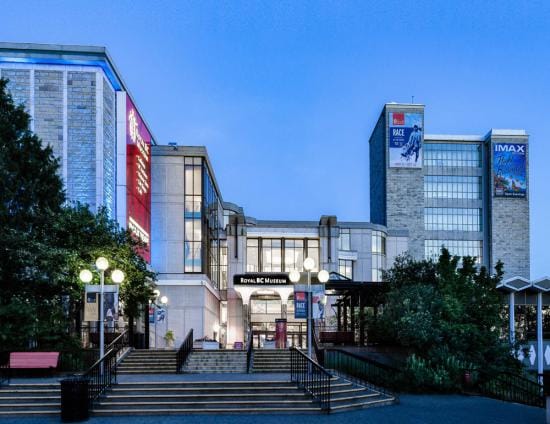
Modernization
Learn more about government’s intention to modernize the museum to protect our historic holdings and provide better access to our collections.
The Peace River Break—it is where the Boreal Plains meet the Northern Boreal Mountains; where the Rocky Mountain’s Hart Range intersects with the cool waters of the Peace River. It’s a place where grizzly bears roam and woodland caribou graze; where sweeping vistas give way to wetlands, aspen forests and rolling grass lands. And it is home to some of the most fertile farm lands in northern BC. It is an oasis for wildlife, hikers, anglers, and agriculturalists. The Peace hosts a continental climate that supports diverse ecosystems, acts as a sanctuary to a number of threatened and endangered species, and provides rich soils that could feed up to a million people.
This key connection is under great pressure. According to Global Forest Watch Canada, the Peace River Break is experiencing industrial-caused disturbances at rates that are greater than those found in Alberta’s oil sands region. Oil and gas development, coal and coalbed methane development, forestry, mining and wind energy development, as well as the recently approved Site C hydro dam, act as barriers to wildlife movement and threaten the integrity of the landscape. These barriers could create a pinch-point that effectively cuts the Yellowstone to Yukon region in two. In partnership with Treaty 8 First Nations, local communities and conservationists, Y2Y is leading efforts to restore the Peace River Break to a healthy habitat that supports wildlife movement.
About the Speaker:
Tim Burkhart is the Peace River Break Coordinator for the Yellowstone to Yukon Conservation Initiative. Tim has a lifelong love of wild places, and combines a commitment to social and environmental justice with an understanding of historical realities and experience in on-the-ground political operations. Prior to joining the Y2Y team, Tim was committed to driving positive change as an organizer for multiple non-profit campaigns, and in the past worked as a researcher for the Cohen Commission, which examined the collapse of Sockeye Salmon fisheries on the Fraser River. Tim was inspired to focus his career on conservation advocacy and research after two seasons as an operations manager for several provincial marine parks in the Southern Gulf Islands, where his passion for the wild evolved from a fascination with Canadian natural history to contemporary politics and policy surrounding the environment, natural resources and conservation movements. Tim lives in Chetwynd, a small town in the beautiful Peace region, with his faithful dog Mick.
Photo Credits: Tim Burkhart